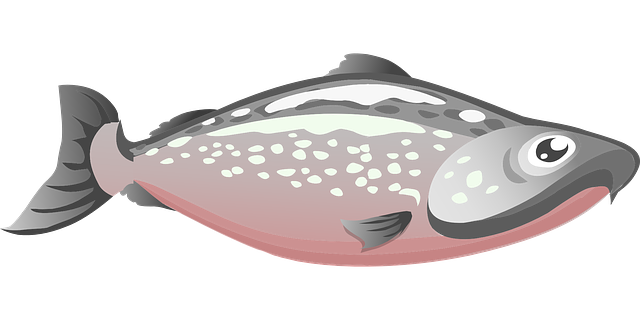
The Health Benefits Of Fish
Fish is a low-fat, high-protein food offering a variety of different health benefits. White-fleshed fish has a much lower fat content when compared to other animal proteins, while oily fish contains a rich source of omega-3 fatty acids (“good” fats). Since our bodies cannot produce adequate amounts of this essential nutrient, fish plays an important role in our diets. At the same time, most fish have low levels of “bad” fats which are mainly present in “red meat”, also known as omega-6 fatty acids. If you would like to see some of the ‘best-smoked salmon UK‘ then see here.
Why Are Omega-3s Good For Your Health?
There is already a lot of evidence that suggests that omega-3 fatty acids offer several health benefits. Some of these include:
- Helps to maintain cardiovascular health. Omega-3 fatty acids regulate vessel constriction and blood clotting.
- Important for postnatal and prenatal neurological development.
- May alleviate symptoms linked to rheumatoid arthritis and lowers tissue inflammation.
- May play an important role in an irregular heartbeat (cardiac arrhythmia), slow down mental decline, especially in the elderly, and reduce depression.
Omega-3 fatty acids present in fish, better known as DHA and EPA seem to offer the most important health benefits. Fish that are eco-friendly, contain low levels of environmental contaminants, and are high in omega-3s include:
- Sablefish
- Wild salmon from Alaska (canned, frozen, and fresh)
- Atlantic mackerel
- Anchovies
- Arctic char
- Sardines
- Albacore tuna from Canada or the U.S.
- Farmed rainbow trout
Information About Fish Oil Supplements
In addition to eating fish, other ways to consume important omega-3 fatty acids include taking supplements. Fish oils are derived from caught fish and smaller fish usually used as animal feed, including Peruvian anchovies.
Cautionary tip: Contaminants including PCBs build up in fish oil, similar to the way they do in many fish species. For this reason, only buy supplements that contain “purified” fish oil.
Other Sources Of Omega-3 Fatty Acids
Omega-3s are also present in terrestrial sources such as wheat germ, walnuts, and flaxseed. While these may be beneficial, they don’t provide the same levels of health benefits as the omega-3s present in marine algae, shellfish, and fish.
Do Health Benefits Of Omega-3s Outweigh Risks Linked With Contaminants Present In Seafood?
In general, fish is considered a food source that is healthy and is usually safe to eat. But the health circumstances and age of certain people may mean that they should be limiting how much fish they are eating. Here are a few considerations:
For women of childbearing age and young children, eating excessive amounts of fish that are contaminated with mercury can drastically impact the development of the child.
Older men and women might think it is acceptable to exceed the seafood recommended meal limits in order to increase their intake of omega-3s. People that are already at risk for cardiovascular diseases, should consider the risk of cancer when consuming fish high in PCBs, with the advantages of consuming fish that is high in omega-3s. In these cases, the omega-3 benefits might outweigh the cancer risks (1 in 100,000, level recommended by the EPA).
However, these types of chemicals can result in serious health issues, other than cancer, so the tradeoffs are not always that simple. However, there are many high-omega-3, low-contaminant options of seafood available, meaning you should avoid the risks of consuming contaminated fish.